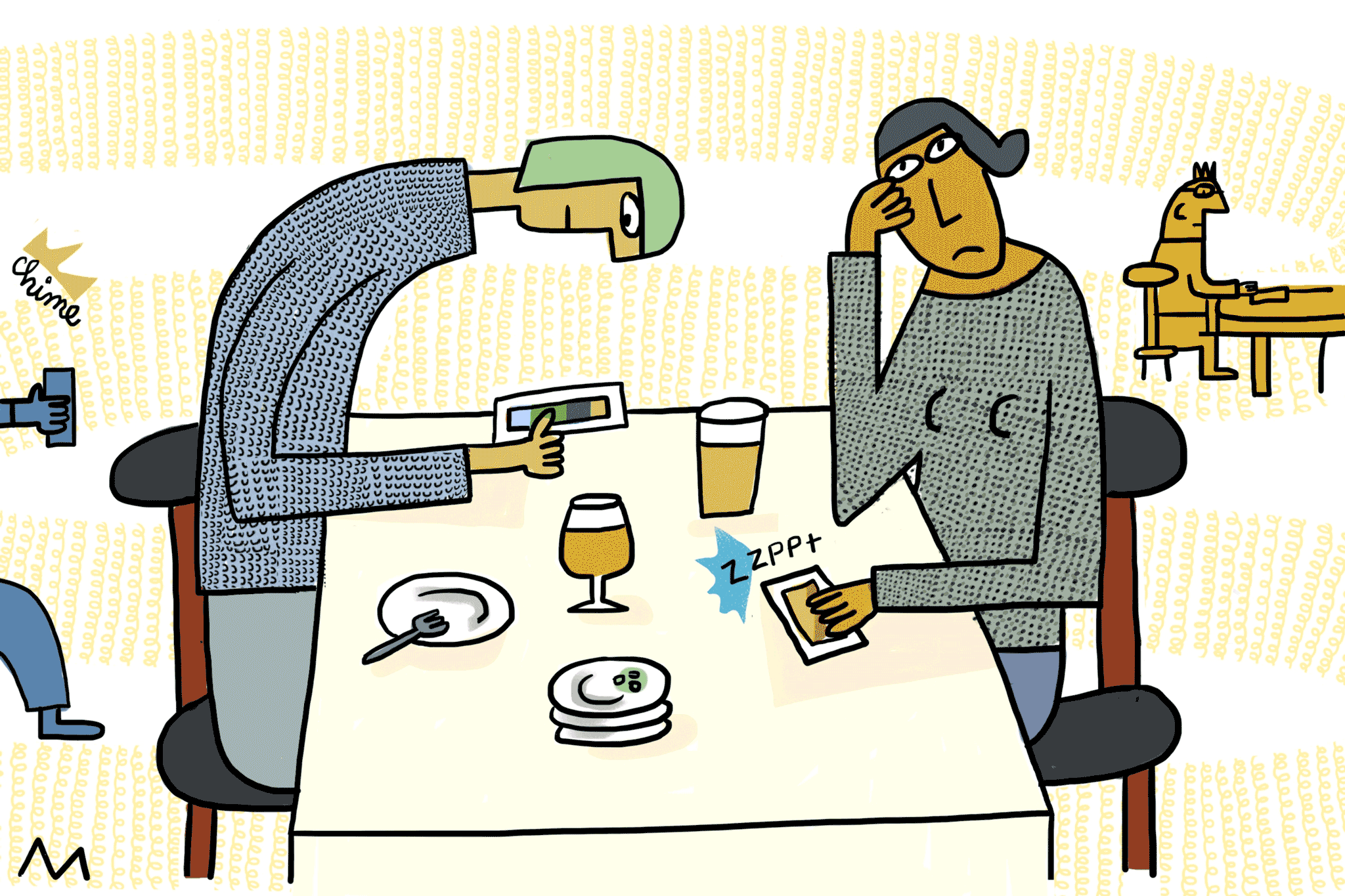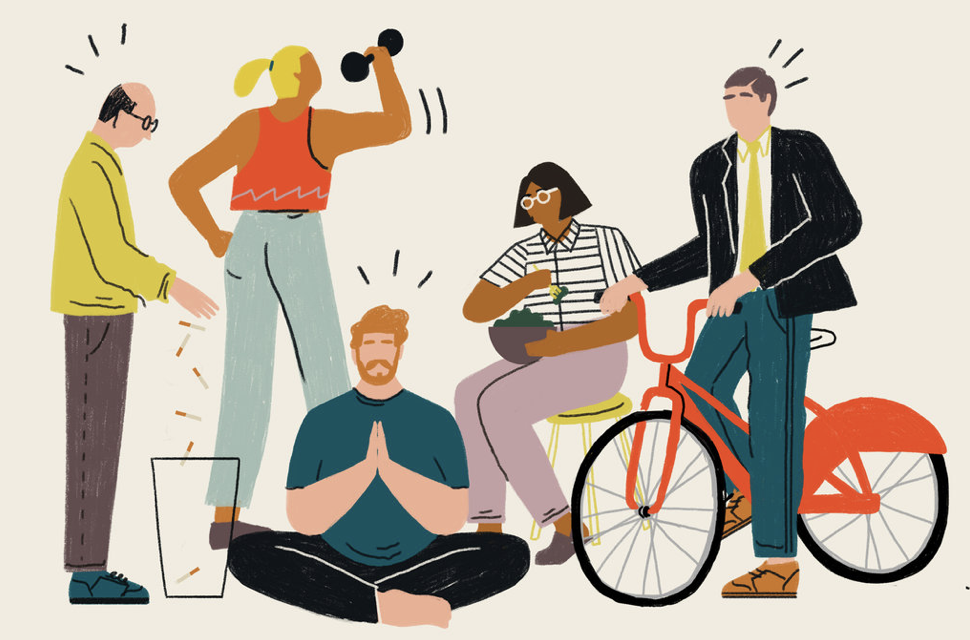Phone love can go too far — so far that it can interfere with human love.
Read moreHow to Set Boundaries With a Difficult Family Member
Jing Wei
Here are her strategies for setting boundaries with a difficult family member
Read moreHow to Tell the Difference Between Regular Distraction and A.D.H.D.
TikTok is leading many adults to question if they have A.D.H.D. If a video (or article) has you thinking you may have undiagnosed A.D.H.D., here’s what to consider.
Read moreHow Therapy-Speak Took Over Dating
Illustrations by Marta Cerdà Alimbau
A growing number of people now broadcast intimate, specific details, including proclamations about their mental health
Read moreHow My Wife and I Took Back Our Sundays
One day a week, we do absolutely nothing.
Read moreMy Boyfriend Loves Me, but He’s Not Affectionate Enough
Bianca Bagnarelli
Most people come in making a case for why the other person needs to improve. Spoiler: That never helps.
Read moreSex? After Kids? Tell Me More, Esther Perel
Dr. Becky consults with the renowned couples therapist, Esther Perel, to talk about what parents can do to rekindle their desires.
Read moreWhy does it hurt so much when we get ghosted?
Lucy Jones
Caring about what people think is a protective process, designed to help us build a net of belongingness and safeguard us against the loss of love.
Read moreHow to Save Yourself From ‘Task Paralysis’
Janik Söllner
These expert tips can help you snap out of your frozen state and bring your control center back online.
Read moreMarriage Is a Team Sport
If your relationship is a little too competitive and not collaborative enough, there are a few effective steps to consider.
Read moreHow Should We Think About Our Different Styles of Thinking?
Grandin likes the idea that there are two kinds of visual thinkers, because it helps make sense of differences between like-minded people.
Read moreMany teens struggle with mental health issues. Here are tips for parents.
Working on managing your own emotions, asking the right questions and helping to determine the level of support they need are effective ways to empower adolescents
Read moreThe Best Way to Comfort Someone When They’re Sad
A limited yet growing body of research suggests that one of the most powerful ways to support someone is also the simplest: Start a conversation.
Read moreHow to Make (and Keep) a New Year's Resolution
Abbey Lossing
Here’s how to identify the right resolution to improve your life, create a plan on how to reach it, and become part of the small group of people that successfully achieve their goal.
Read moreHow to Fend Off Holiday Stress, from People Who Should Know
A UPS driver, a baker and Santa’s helper share advice for staying present through the season.
Read moreAre You the Same Person You Used to Be?
Are we the same people at four that we will be at twenty-four, forty-four, or seventy-four? Or will we change substantially through time? Is the fix already in, or will our stories have surprising twists and turns?
Read more6 relationship resolutions to make this year
Krystal Quiles
Making small changes in our relationships can yield big results.
Read moreWhy talking to strangers is good for you, them and all of us
Stocksy
Instead of avoiding strangers, we need to get good at interacting with them, both to get help when we need it and to be of use to them.
Read moreWhat Is Social Anxiety?
Social anxiety is one of the most common mental illnesses, but it’s still poorly understood outside of scientific circles. The good news is that it’s highly treatable
Read moreHow to Be Mindful at the Holiday Table
Sam Kalda
How to Be Mindful at the Holiday Table
By David Gelles for The New York Times
“Holidays often come wrapped in memories and expectations. Mindfulness offers the gift of being present in the moment. Just show up and be interested. At holidays, this means simply being present in the moment with compassion for yourself, and others.” — Nina Smiley, director of mindfulness programming at Mohonk Mountain House.
As you sit down at the holiday table, focus on breathing slowly and deeply.
Take in the sights, without judgment.
Be aware of the tapestry of sound around you.
Smell the aromas wafting through the air.
Watch the mind. If it begins telling stories based on memories and expectations, let them go.
Return to the senses again and again, replacing stories with simply being present.
Read the full article here.



















